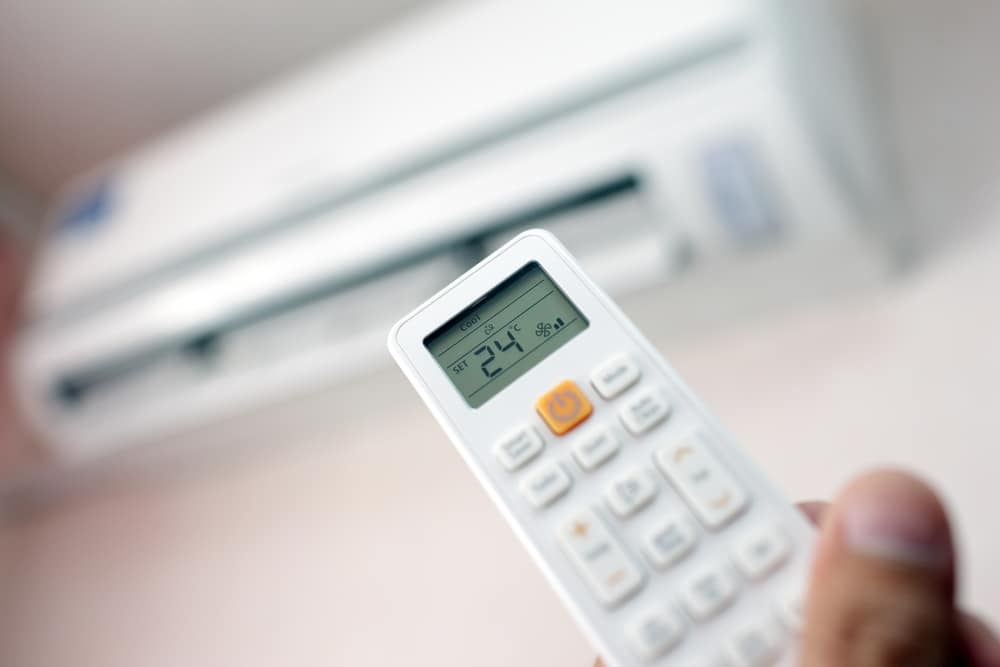Owning a heat pump is a great way to control the temperature by heating your home during the colder months or cooling down in hotter months. Heat pumps are a cost-effective and energy-efficient solution when used correctly due to moving heat rather than generating it.
If you live in Chilly Dunedin and own a heat pump, your power bill may still skyrocket every winter by using it incorrectly. However, with these tips, you can make this coming winter your most energy efficient yet.
To save costs, you should run your machine at the optimal temperature, depending on the season. This, paired with regular maintenance and a few general rules of thumb, will have you warm and dry at the lowest possible cost.
Saving Money on Heating using Heat Pumps
When running your heat pump during the winter, it is essential to note that turning the heat setting to its maximum temperature will not speed up the heating process. However, this will result in an increased energy cost.
Optimal temperature
According to Gen Less, the optimal temperature to warm a home is between 18-21 degrees. Keeping above 18 degrees allows the machine to fight against mould or dampness during the wet winter months, yet remaining below 21 degrees helps reduce power usage.
It generally takes about 10-15 minutes to reach the desired temperature in a room. Therefore, using the programmed timer, which features on all McClelland-sold heat pumps, allows your machine to heat up just before you arrive home or wake up. To assist in the heating process, it is recommended to close any doors or windows and pull curtains where possible to help trap the heat in the space.
A well-insulated home keeps the temperature from outside coming in and holds the heat from a heat pump much better, contributing to energy efficiency. To save money, turn off the heat pumps in unoccupied rooms or when finished with them. Cleaning your heat pump filter every few weeks using a vacuum cleaner or warm water ensures that the machine remains at optimum efficiency, helping to reduce the risk of unnecessary energy consumption caused by a build-up of dust and debris, which clogs the air filters and restricts airflow.
Heat Pumps Save Money on Cooling in Summer
During summer, the same principle as winter applies, where opting for a reasonable temperature for your heat pump will ensure you do not overwork your machine. Fujitsu recommends setting the temperature between 23-26 degrees on the cooling setting of your heat pump during the summer.
Other factors to consider are shutting curtains or blinds to assist in keeping out the hot sun and closing off doors to unused rooms. Using the dehumidifying option on your McClellands heat pumps helps to use less energy than the full air conditioning option. Avoid using the ‘auto’ option, as this may switch to the heating program.

Where Is The Best Position For My Heat Pump?
Many factors can influence where the best positioning for a heat pump’s outside and indoor units. It is essential that the outside unit has proper airflow while still having protection from the elements, such as seaspray, which can cause corrosion. South-facing walls are not recommended, and ideally, you should install the unit in a dry, shaded area away from bedrooms, as it can be noisy.
The actual heat pump inside the home generally gets placed in the most used area of the home. This is in the living room or kitchen/dining space for most people. Positioning the heat pump against an external wall is ideal as less piping is required the closer it is to the outside unit.
Conclusion on the Best Temperature
Running a heat pump throughout the year doesn’t have to be expensive, so long as you know how to run your machine. It is essential not to overwork your heat pump at a super high or super low temperature in an effort to speed up the heating or cooling process. Also check out our article on Salt Air and Heat Pumps.
Factors such as the placement of your outdoor unit and the size of the space you are trying to heat up all contribute to how energy efficient your machine is.
If you want to install or get recommendations on the best heat pump for you, or have any questions regarding how to use your machine, do not hesitate to call McClelland’s for professional advice.
About McClelland Refrigeration
Established in 1990, McClelland has been building a reputation of excellence with people in Dunedin and throughout the Otago region. These almost three decades of installing and servicing heat pumps and refrigeration systems have established us as a regional leader.
Call us today on 03 477 0088 or send us a message – we would love to help you.




